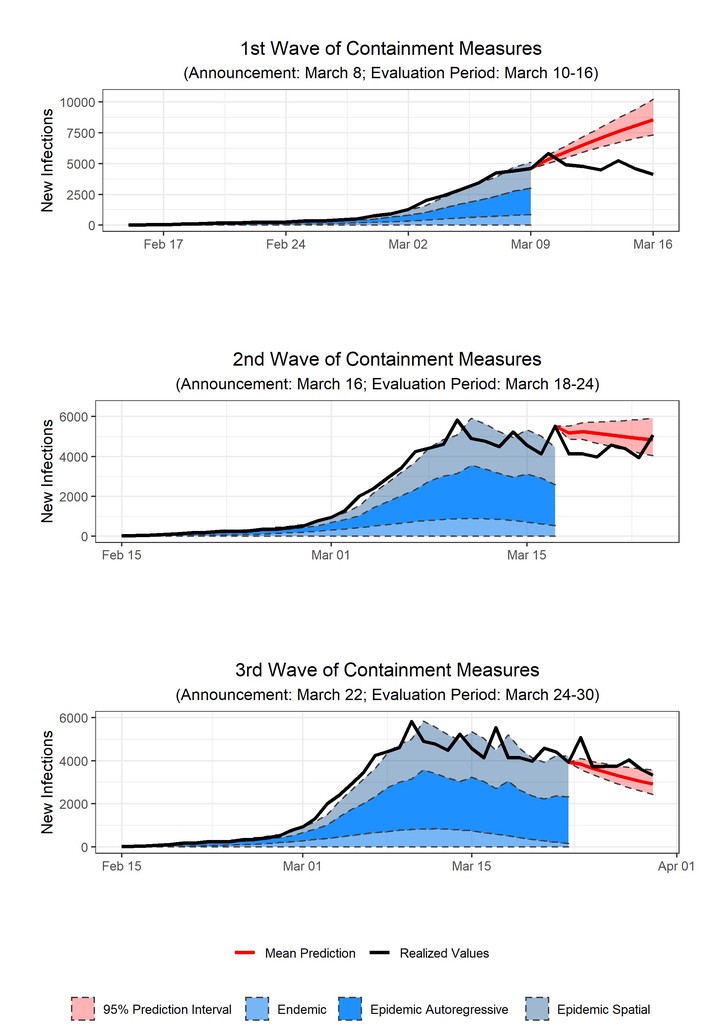Right and yet wrong: a politico-economic perspective on Germany’s early COVID-19 policy

Abstract
Applying a spatio-temporal endemic–epidemic forecasting model, we evaluate different perspectives on the adequacy of COVID-19 containment policies. Using Germany’s early containment policy as an example, we show that containment policies judged as rational based on the real-time perspective of policymakers may be deemed unnecessary or ineffective in ex-post evaluations. We also demonstrate that one-size-fits-all policies implemented in Germany early in the pandemic are likely suboptimal.
Type
Publication
Regional Studies